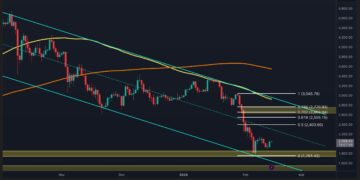Faced with new customs duties in the United States, Chinese low-cost e-commerce giants Shein and Temu are refocusing their efforts on Europe and Latin America. This is more of a forced redeployment than an offensive move.
The Trump administration’s ban on the “de minimis” regime dealt a severe blow to Chinese exports. Since then, new taxes on small parcels have been firmly in place in the United States, forcing Shein and Temu to adjust their model.
The first measure is to reduce advertising spending. Temu has cut its average daily spending in the US by 31%, equivalent to a third of $4bn, two-thirds of which was invested in Meta ads. Shein has reduced its spending by 19%.
Second measure: pass on cost increases to customers. Since April 25, prices have included the new taxes. But the economic equation is becoming fragile: margins are eroding, and sales are likely to follow, as 82% of Temu’s customers buy primarily for low prices (53%) or promotions (29%).
Europe in the crosshairs
Kimber Maderazzo, professor of marketing at Pepperdine Graziadio Business School, said Shein and Temu would focus on retaining their existing customers in the US and continuing their aggressive advertising strategy internationally.
The result: a sharp shift in marketing spending toward Europe.
In April, Shein increased its advertising spending in France and the United Kingdom by 35%. Temu did even better in the United Kingdom (+40%) and grew by 20% in France. Over the year, Temu increased its spending by 115% in France and 20% in the United Kingdom. Shein, for its part, posted +45% in France and +100% in the United Kingdom compared to April 2024.
But this refocusing has not yet produced miracles. In the UK, active users grew by only 5% for Shein and 10% for Temu. The growth momentum is slowing. The golden age of ultra-low acquisition costs and customs loopholes seems to be over.
Towards an end to exemptions in Europe?
France wants to go further. It will propose to Brussels that “handling fees” be introduced immediately, pending the customs reform planned for 2028. The aim is to end exemptions for parcels worth less than €150, following Washington’s example.
I will do my best to spare you a lecture on price elasticity, but in this context, the ability of brands to pass on cost increases becomes crucial. However, their pricing flexibility seems limited, both in Europe and in the US.
Brazil, the new El Dorado?
Faced with these headwinds, both companies are looking for new growth drivers. Latin America could well become their new playground.
Shein and Temu have already begun to transfer some of their digital advertising to Brazil:
Shein already has a logistical advantage there with production sites in Brazil. In 2025, it accelerated its investments there by 140% in one year. Temu, which arrived in the region in the summer of 2024, has increased its advertising spending 800-fold in one year.


















